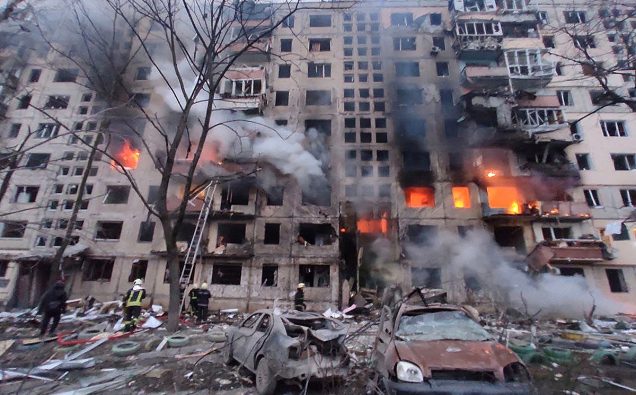
Since Russia’s invasion of Ukraine, the war has devastated cities, towns, and lives. The war has also had dangerous repercussions for the world, worsening the food crisis and supplies as both Russia and Ukraine are among the largest exports of food products,
According to the United Nations, the number of civilians killed, wounded, or maimed has also increased. There have been at least 12,272 civilian casualties by the middle of the last week, including 5,237 deaths.
The world body officials say these figures are based on verified incidents and the actual numbers are considerably higher.
The latest deal for the export of Ukrainian grain to the world markets is a hopeful development but nobody is sure when the war will end.
Meanwhile, the United States and its European allies have supported Ukraine’s fight with military supplies. But analysts say the Russian war strategy shows that Moscow is in for a long war.
On Monday, the first shipment of Ukrainian grain left from Odesa port but the conflict shows no signs of ending.
Rosemary DiCarlo, UN under-secretary-general for political and peace-building affairs, said the recent agreement on the safe resumption of grain exports via the Black Sea was a bright light in the conflict, though acknowledging the dim prospects for peace.
The war’s impact globally is “glaringly clear”, said Ms. DiCarlo, noting that the consequences will only become more pronounced the longer fighting lasts, particularly with the onset of winter.
“Despite the encouraging developments on grain and fertilizers, we remain deeply concerned about the lack of prospects for a shift towards a meaningful resumption of diplomatic efforts to end the war,” she told the Security Council.
“Escalatory rhetoric from any side, including about expanding the conflict geographically or denying Ukraine’s statehood, is not consistent with the constructive spirit demonstrated in Istanbul.”
Ms. DiCarlo said that since her last briefing in late June, deadly attacks by Russian forces have continued unabated, reducing many Ukrainian cities and towns to rubble.
“As the conflict enters a more protracted phase, attention is increasingly turning to its longer-term humanitarian, recovery, reconstruction, and socio-economic impact. As summer wanes, the need for winterization planning is also becoming pressing,” she said.
Since the start of the war, the UN and humanitarian partners have provided aid to some 11 million people, including in the form of food and livelihood assistance, protection services, mine clearance, and in accessing safe water and sanitation.
Nearly six million Ukrainian refugees have found shelter across Europe. Since the war began on 24 February, border crossings from Ukraine have totaled more than 9.5 million, while crossings to Ukraine numbered 3.8 million.













